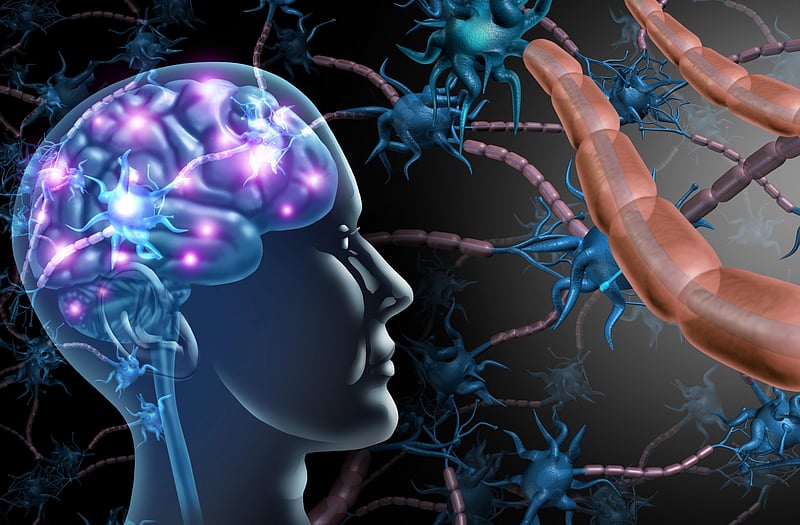Manténgase sano!

- Posted March 2, 2022
Could the Keto Diet Help People With MS?
The Keto diet is a low-carb lover's dream, but a new study suggests the popular eating plan may also improve some symptoms of multiple sclerosis (MS).
MS is an autoimmune disease that occurs when your body attacks the insulation wrapped around its nerves, causing numbness, fatigue, bladder problems, mood issues and mobility problems that can interfere with daily life. There is no cure for MS.
But there may be a way to ease symptoms.
In the study, when folks with MS ate a keto diet for six months, they reported less fatigue and depression, and an improved overall quality of life.
"Our study provides evidence that medically supervised ketogenic diets are safe and tolerable when studied over a six-month period, and convey clinical benefits to persons living with MS," said study author Dr. J. Nicholas Brenton. He is the director of the Pediatric MS & Related Disorders Clinic at the University of Virginia in Charlottesville.
Keto diets restrict your intake of carbs while increasing fats and protein. The goal is to shift from burning blood sugar for energy to a fat-burning state (ketosis), producing weight loss.
Exactly how a keto diet improves symptoms of MS isn't fully understood yet, but the researchers have their theories, starting with the weight loss it induces given the emerging role of obesity in MS. Ketogenic diets may also reduce inflammation and help re-balance the bacteria in the guts of people with MS. Certain gut bacteria create more inflammation in the body and this has been observed in some people with MS, Brenton said.
The study included 65 people with relapsing-remitting MS, the most common form of the disease. It is marked by periods of flares followed by remissions. Patients ate a strict keto diet for six months. Researchers measured ketones in their urine each day to see if they were sticking to the diet. (Ketones are produced by the body when it is burning fat for fuel.) Fully 83% of participants adhered to the diet for the six-month study period.
Those who followed the diet had less body fat and showed about a 50% decline in fatigue and depression scores after six months. What's more, their quality of life and mental health scores improved over the course of the study. They also performed better on tests measuring MS disability. Specifically, study patients walked an average of 1,631 feet on a six-minute walking test at the start of the study, compared to 1,733 feet after six months on a keto diet.
Levels of inflammatory markers in their blood also improved through the study period, Brenton said.
So, should everyone with MS start eating a keto diet?
Not necessarily, Brenton said. There is no one-size-fits-all MS diet. "What works for some patients may not work for others, and accumulating evidence suggests that there are numerous benefits to diet interventions in patients living with MS," he said. "My current advice is to eat a healthy, well-balanced diet and to maintain a healthy weight, as both of these aspects likely play a positive role in MS."
The study is scheduled for presentation at the American Academy of Neurology's annual meeting in Seattle, to be held April 2 to 7. Findings presented at medical meetings should be considered preliminary until published in a peer-reviewed journal.
This study builds on previous work in animals and smaller studies in people, said Dr. Barbara Giesser, a neurologist at the Pacific Brain Health Center in Santa Monica, Calif.
"Ketogenic diets may be of benefit in persons with MS by several mechanisms, including decreasing inflammation, reducing body fat, and/or promoting a less inflammatory gut microbiome," said Giesser, who has no ties to the new study.
The study did have its share of limitations, including its small size and lack of a control group for comparison's sake, Giesser noted.
And keto diets aren't risk-free, she said. "Ketogenic diets could lead to other medical complications or nutrient deficiencies," Giesser explained, "and any dietary regimen should be undertaken after consultation with a physician."
General dietary recommendations for people with MS include eating a heart-healthy diet that limits saturated fats and highly refined grains, sugars and processed foods, and is abundant in colorful plants, lean proteins and polyunsaturated fats such as omega-3 fatty acids found in salmon and other fatty fish, Giesser advised.
More information
The American Academy of Neurology's patient education magazine, Brain and Life, offers more on living with MS.
SOURCES: J. Nicholas Brenton, MD, director, Pediatric MS & Related Disorders Clinic, and associate professor, pediatrics, neurology, University of Virginia, Charlottesville; Barbara Giesser, MD, neurologist, Pacific Brain Health Center, Santa Monica, Calif.; American Academy of Neurology annual meeting, Seattle, April 2 to 7, 2022






